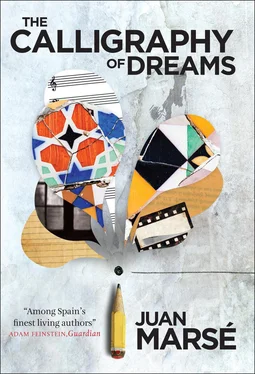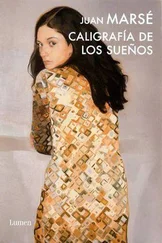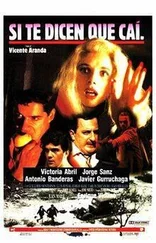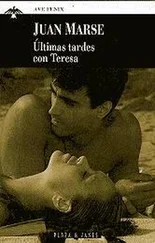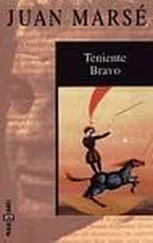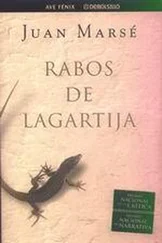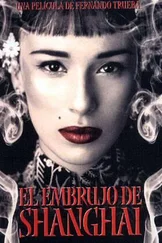“Today I learnt how to play three-card brisca .”
It is on occasions like this that Ringo feels closest to her, when he hears her talking about the good times she has at work, and tells them about the old people’s mischief-making and manias, their fears, weaknesses and little whims, and above all when he watches her tirelessly practising with the needle and orange and observes, on tenterhooks, how her shaking hand tries again and again to push the needle in without doing harm. Poor orange! The Rat-catcher laughs from beneath the pillow: Alberta light of my life, you’d learn much quicker if you used a bishop’s arse.
The usual ill-timed, foul-mouthed comment from her husband. Why does she put up with it? Why allow him to call her Alberta, when everyone else calls her Berta, and she herself has said that is what she prefers?
Now I’m going to tell you something about our Alberta, his father explains to him one day, glass of brandy in one hand, gesturing dismissively although his voice is firm, so listen carefully and make no mistake: Your mother isn’t blind, she’s a believer. And remember: to be a believer and to want to be one in spite of everything, to be one for herself and in silence, ignoring our hypocritical and pompous ecclesiastical hierarchy, to be one without having recourse to the ostentation of a corrupted Church and clergy, who pervert the souls of children in catechism classes and the confessional, who offend the memory of the dead at funerals and of the living in their ranting homilies, to be a believer despite all the vileness blessed by bishops and cardinals, and to know as well how to forgive all the fooling around and digs at her expense she faces in her own home, from the mouth of her own husband: all these things are what this modest woman offers as her lesson, one you would do well to remember. It’s true that her good-for-nothing husband does not share her faith or her pious practices, it’s true he is a blasphemer and a heretic, but it is no less true that she never once, however hurtful his jokes, has reproached him for them or tried to stop him …
The whitish smoke, increasingly full of sparks and embers, curls up into the night, and for a brief moment high in the sky forms extraordinary figures that intrigue Ringo. For a moment he imagines he can see the burning bodies of Mowgli and Shere Khan the tiger writhing in the midst of the flames, but they disappear almost immediately. He carries on looking, and it’s not long before he gets a fleeting glimpse of a volume whose title The Conquest of Bread is burning along with its girls who become anaemic in the factories of Manchester , the only words he stumbled across by chance at home one day, when he opened the book out of curiosity, thinking it was a mystery or crime novel. On another collapsed part of the bonfire, a copy from the Men of Daring collection, costing 60 cents with bright-red lettering announcing the title The Wings of Death , suddenly opens its pages like a hedgehog sensing danger, and rolls to the edge of the pyre. The flames have already consumed half the brightly coloured front cover illustration, a plane emerging from a storm cloud to confront a giant condor, wings spread as it threatens to sweep the airman from the skies. Ringo immediately recognises the pilot in his cockpit:
“Oh, no, please! Nooo!”
It is one of the little novels featuring Bill Barnes, the famous Air Adventurer. His father’s lack of attention as he hurriedly emptied their bookcase has condemned the aviation hero to death, burnt to a crisp in a makeshift bonfire behind a shed in a hidden garden in a poor neighbour-hood in post-war Barcelona. Bill could never have imagined such an abrupt, unheroic end. Shit! Shit! The boy points his trembling finger at the book being so unjustly consumed by the flames, and reproaches his father for this huge mistake. Bill shouldn’t be here, Bill and his plane don’t deserve to end this way, turned to ashes right in front of his eyes! Seizing the stick from his father, he tries to pull the book out of the fire, but it’s too late, the hero and all his derring-do shrivel into a dark rose that crumples and wrinkles in a few seconds, ash printed in double columns that for a brief moment is still bound and resistant.
“It’s being burnt to ashes!”
“I’m sorry, son, I must have picked the comic up without realising it.”
“It’s not a comic!”
“I told you not to put anything of yours on that shelf …”
“Why didn’t you look? Why?”
“There’s no need to cry over such a small thing. Right now much more important stories are being burnt, but look, nobody is complaining. I’ve already said I’m sorry.”
That’s a rotten lie, how could he possibly be sorry when he doesn’t have a conscience, only a rat with its stomach full of poison frothing green at the mouth? Ringo glowers spitefully at the charred pages of the book still standing upright, until they finally collapse and completely disintegrate. Bill Barnes curses you from on high, you heartless buzzard! He senses his mother’s hand in his once more, but there is no pull, sign or gesture to show she wants to get him away from there. The fire does not crackle, the books do not seem to complain as they are consumed, apart from a faint whistle. Señor Sucre and Señor Casal are circling around it cautiously: they both laugh at his outburst, at how upset he is over such a small thing. Banned books always smell suspicious, says Señor Sucre, with his perpetual mocking laugh, his throat eager for a tot of brandy. Then Ringo sees old Señor Pujol, the smoke-seller, approaching him. He is coming round from the far side of the bonfire, from the shadows stretching beyond the red glow, and walks with his hands cupped in front of his chest. Can you see this smoke, my boy? he says, opening and closing his hands above a flame. He turns towards him with his hands clasped together, not like somebody praying but as though he had caught a butterfly and did not want to harm it, or as though he was carrying a tiny lit lamp. Then, half-smiling as he looks Ringo in the eye, he opens his hands and lets out a puff of white smoke.
“What do you say if we hide this book of smoke I’ve found in a safe, secret place,” he says ceremoniously. “And when you’re grown-up, you can recover it. Ha, ha!”
Don Víctor is walking head down round the shadowy garden, and seems to be talking to himself. I’m walking on the ashes of beloved books, Ringo thinks he hears him mutter in what sounds like a prayer, although it could just be more tomfoolery. Señor Casal, who had been a school-teacher and now works as caretaker in a building on Calle Camelias approaches the bonfire with a bunch of papers in one hand and a membership card in the other. He stares at it for a moment, and Ringo can read A.F.A.R.E., Army of the Interior . Suddenly, as if it was scorching his fingers, he throws everything into the flames, then steps away and is engulfed by the shadows. When did you get back from Canfranc? somebody asks his father. He was in La Carroña, his mother insists. Where is Canfranc, Mama? These compromising documents, says Señor Roura, trying not to laugh, were until today hidden in a basement in Calle Fahrenheit up in the Clot neighbourhood. Don’t you think that’s an irony of fate? Señor Falcón is also going round like a sleepwalker. He is very tall, thin and short-sighted, and the flames are reflected in his thick glasses until he takes them off to wipe on his handkerchief, and then the fire shines even more brightly in his sick, doleful eyes, as intensely as if he had a ruby the size of a chickpea burning in each pupil.
“What kind of plane was it that you liked so much?” There’s a weary, flat tone to his father’s voice, but it rouses Ringo from his thoughts. “A fighter, a seaplane, a bomber? Come on, we’ll find another one the same, don’t be so upset.”
Читать дальше
